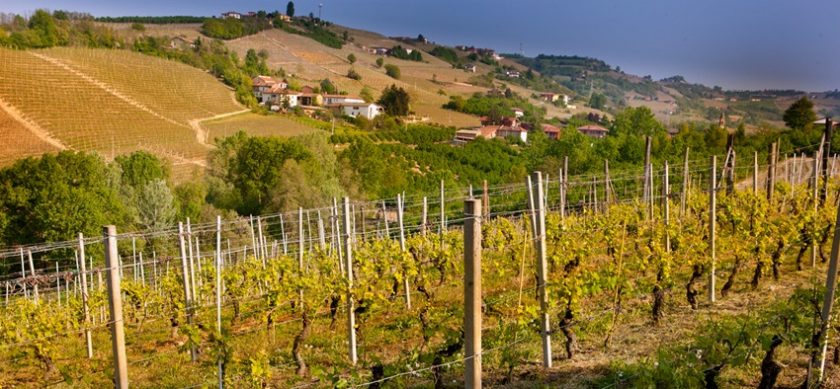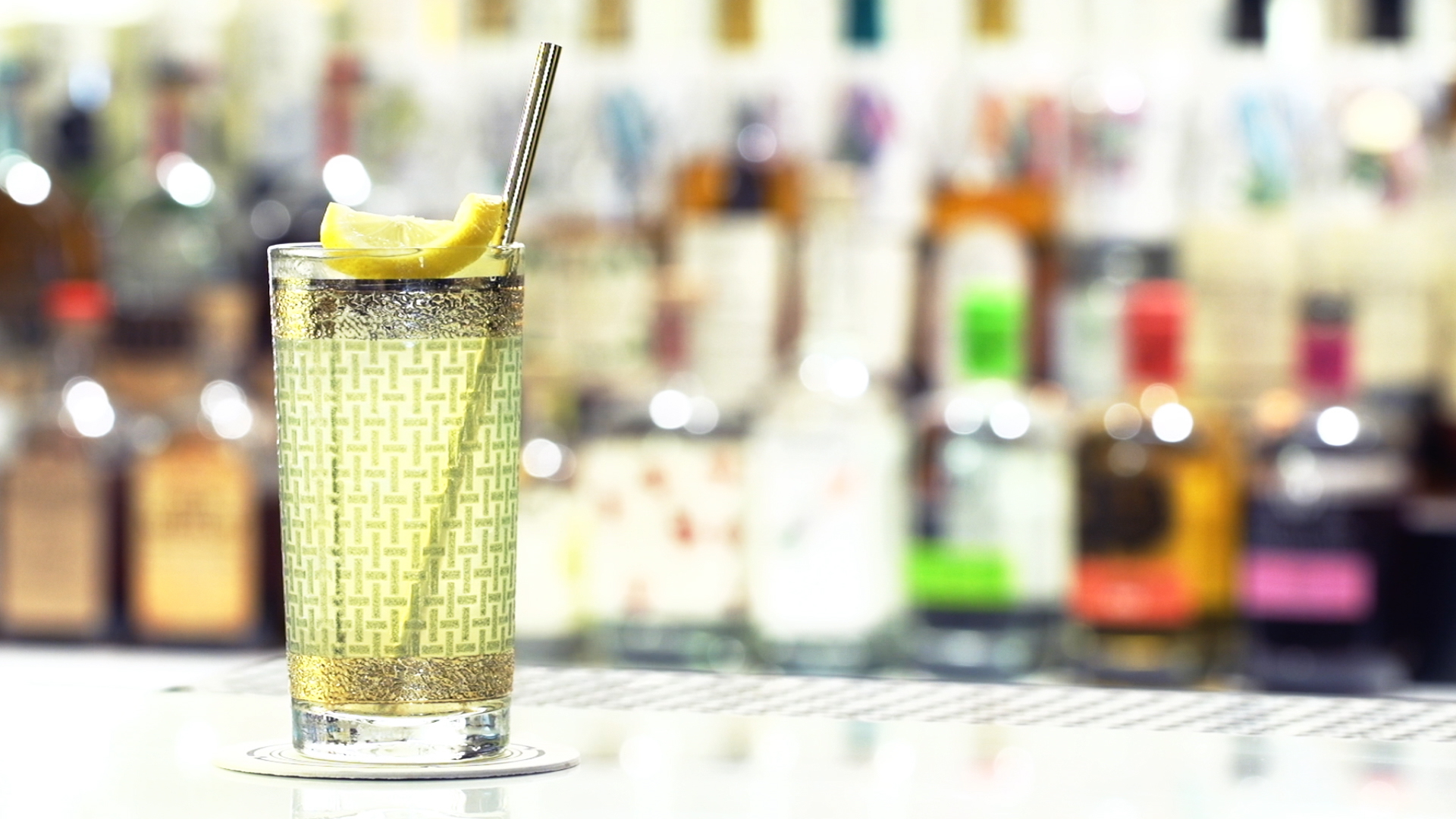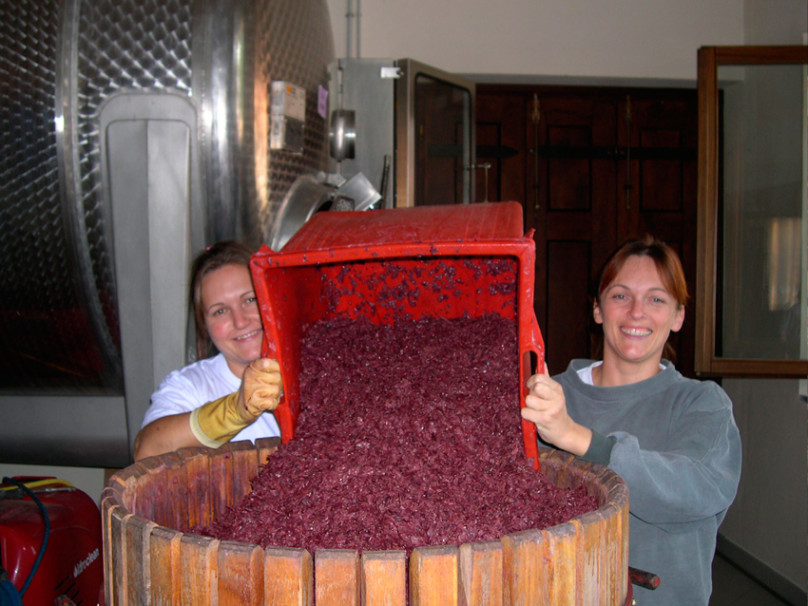
Renato Cigliuti may produce some of the best damn Barbaresco you’ve never heard of, but he is, first and foremost, a farmer. In fact, he comes from four generations of farmers who have tilled the Langhe soils to support their families. So, it came as a great shock to Renato’s family and their neighbors in the early 1960s when Renato decided to begin green harvesting, a practice utilized by very few producers at the time. His neighbors wanted to have him committed for “throwing away money,” but Renato had a clear idea of what he wanted to accomplish, having always believed that the local Langhe soil was capable of producing high quality, long-lasting wines. Renato warded off his neighbors by explaining to them that if he couldn’t have both quality AND quantity, he preferred to opt for quality. And quality is exactly what he got when he made his first release of 300 bottles of 1964 Barbaresco.
Over the years Renato did not expand his winery a great deal, mostly because he didn’t think his daughters would be interested in working the land. But life, as it often does, surprised him. Today the winery is run by Claudia and Silvia Cigliuti, with Renato and his wife Dina supervising. Both of his daughters began working on the farm in their spare time as students and fell in love with the countryside – just like their father. And that was that! Renato just turned 80 years old, and his daughters are now the next generation to bring these great wines to the market.
For the Cigliuti family, 90% of the winemaking process happens in the vineyard. Only in this way can the final product capture the characteristics of a vintage and the identity of a terroir. Work in the cellar is kept to a bare minimum; no selected yeasts are used, and grapes ferment in stainless steel at a controlled temperature. With the exception of Dolcetto, all of the wines age in oak.
“If there is an estate in Barbaresco that deserves more attention, it is without question Cigliuti.”
– Antonio Galloni, Vinous Media
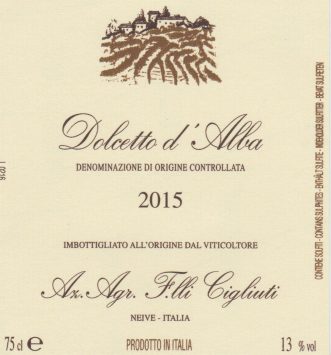
Dolcetto d’Alba: 100% Dolcetto from the Serraboella cru in Neive. The 20 year old vines are planted at 350m above sea level in calcareous soils. Fermentation and maceration in stainless steel. The wine is aged 9 months in stainless steel before release.
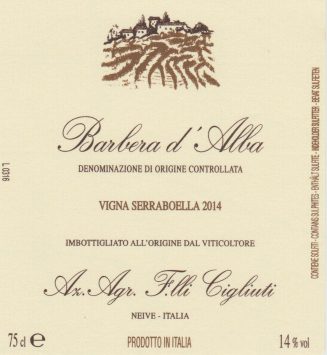
Barbera d’Alba ‘Serraboella’: 100% Barbera from a few small parcels in the Serraboella vineyard in Neive with a southeastern exposure at 350 m above sea level. Clay soils. 20 year old vines. Fermentation and maceration: 8-12 days in steel vats at controlled temperatures with indigenous yeasts. Aged 18 months part in large cask and part in second and third passage barriques. Approximately 700 cases produced annually. First produced in 1964.
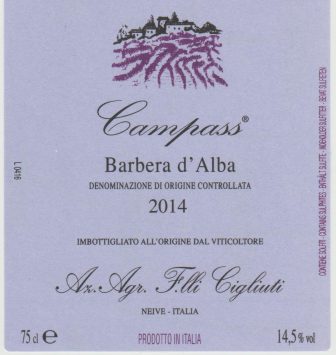
Barbera d’Alba ‘Campass’: 100% Barbera from the Campass single vineyard in the Serraboella cru with a southeastern exposure at 350 m above sea level. Clay soils. 30 year old vines. Fermentation and maceration: 8-12 days in steel vats at controlled temperatures with indigenous yeasts. Aged 18 months part in new barriques and part in second and third passage barriques. Approximately 330 cases produced annually. First produced in 2000.
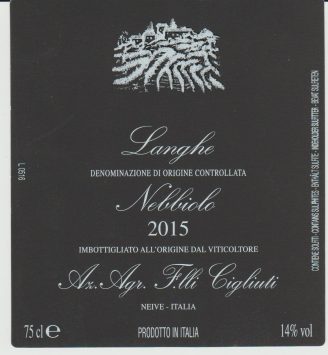
Langhe Nebbiolo: 100% Nebbiolo from the Bricco di Neive cru. The 15 year old vines are planted at 350m above sea level in calcareous, sandy soils. Fermentation and maceration in stainless steel. The wine ages 5 months in stainless steel, followed by 5 months in Slavonian oak barrels before release.
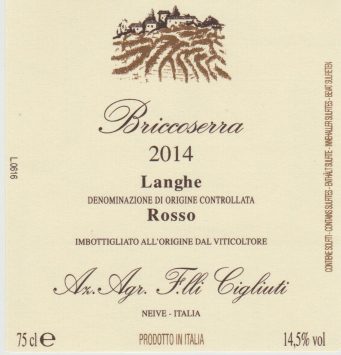
Langhe Rosso ‘Briccoserra’: 50% Nebbiolo and 50% Barbera from 35 year old vines in Bricco di Neive and Serraboella at 350 m above sea level. Fermentation and maceration: 8-12 days in steel vats at controlled temperatures with indigenous yeasts. Aged 18 months in new barriques. Approximately 125 cases produced annually. First produced in 1985 .
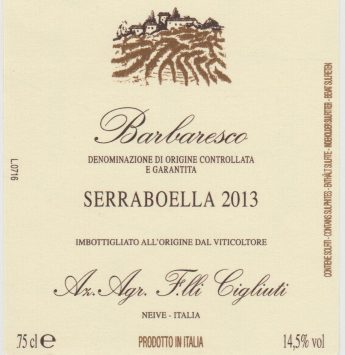
Barbaresco ‘Serraboella’: From 25-55 year old vines planted in calcareous soil in the Serraboella cru at 350 m above sea level. Fermentation and maceration lasts 15-20 days in stainless steel. The wine is aged 26 months in 70% Slavonian oak, 30% tonneaux (mostly used, up to six years old). 580 cases produced annually. First produced in 1964.
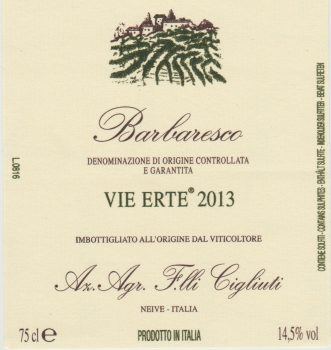
Barbaresco ‘Vie Erte’: From 15 year old vines planted in calcareous, sandy soil in Bricco di Neive at 350 m above sea level. Fermentation and maceration: 15-20 days in steel vats at controlled temperatures with indigenous yeasts. Aged 26 months in large slavonian oak casks. Approximately 400 cases produced annually. First produced in 2000.




